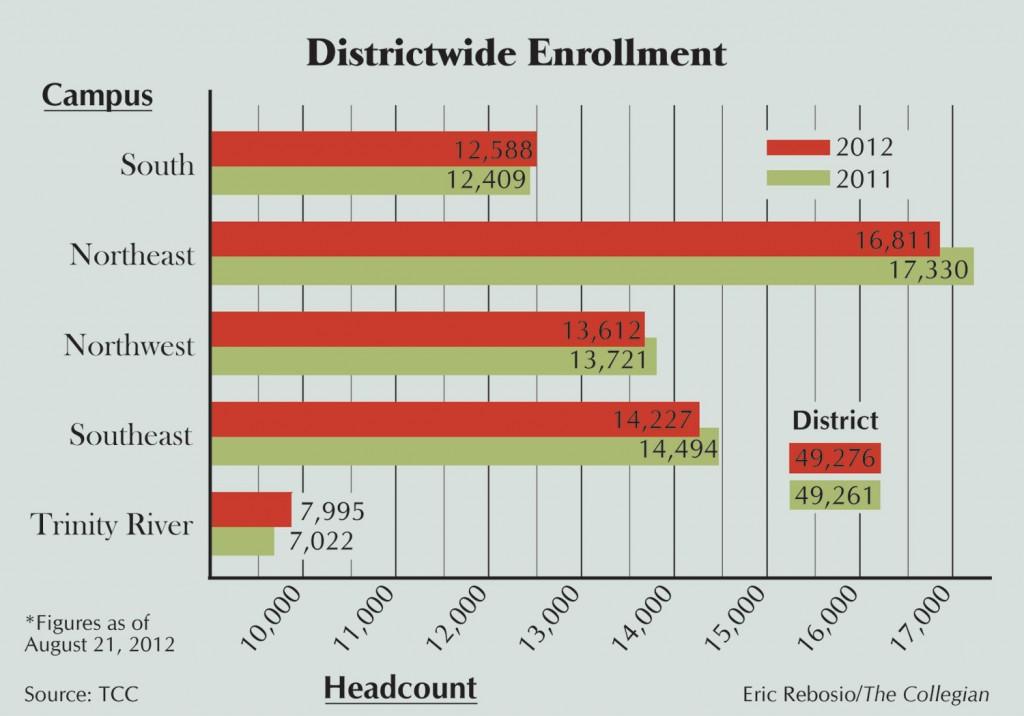By Amelia Smith/The Collegian
Once students graduate and enter the workforce, their futures often depend on their willingness to explore different career options. The Career Mentorship Program on SE Campus helps students do that.
“Students come to me not knowing exactly what they really want to do,” said Gina Maloy, career and employment services coordinator. “We sit down and discuss career options and interests and proceed from there.”

This program is a way for students to find their path into the workforce, Maloy said.
Senior office assistant Quietera Lomax explained the organization.
“The Career Mentorship Program is open to anyone that is enrolled at Tarrant County College and is a way to further your career paths,” she said.
According to the program summary, it “seeks to build bridges for students from the classroom to the professional experience of the real world.” For the mentee, the program provides a great chance to learn from a person involved in their field of choice. Students get advice and experience that cannot be received many places, Maloy said.
“The students who have participated in the past have enjoyed their experiences,” she said.
Only TCC students can participate.
If interested in the program, students need to contact SE career and employment services. Students will be assigned a mentor for one semester and will meet with that mentor periodically.
Zindy Lopez, a SE student, voiced her interest.
“This program could definitely benefit me,” she said. “I want to be a nurse. And if I could speak with an experienced nurse, maybe that would further my career choice and help me decide what kind of nurse I want to be.”
To be part of the program, mentees should be flexible, eager, honest, teachable and available to receive all the program has to offer, Maloy said.
Student Friday Ajayi has already decided on a career field and discussed options with a counselor.
“This program is not necessary for me,” he said, “but it would have been nice to know about when I was deciding on a career.”
However, for the program to happen, there must be mentors who care and are willing to guide students in their paths to their future careers, Maloy said. She said they are looking for people involved in government, nonprofit, faculty and possibly private organizations.
“I have mainly assigned mentees with a member of the Tarrant County faculty to mentor them in their prospective fields,” she said.
Maloy said the requirements of a mentor are simple because it is a flexible program and the time commitment is not much at all. The relationships between the mentor and mentee differ depending on the individuals, but meeting twice a semester is a requirement, she said.
During the meeting time, mentors will discuss the mentee’s career goals and ways these goals can be accomplished as well as the process involved. These meetings can take place at the mentor’s discretion and will be determined at the time discussed.
“Sometimes, students don’t realize what faculty members have to offer,” she said. “They have had past experiences that may help students with their future careers.”























